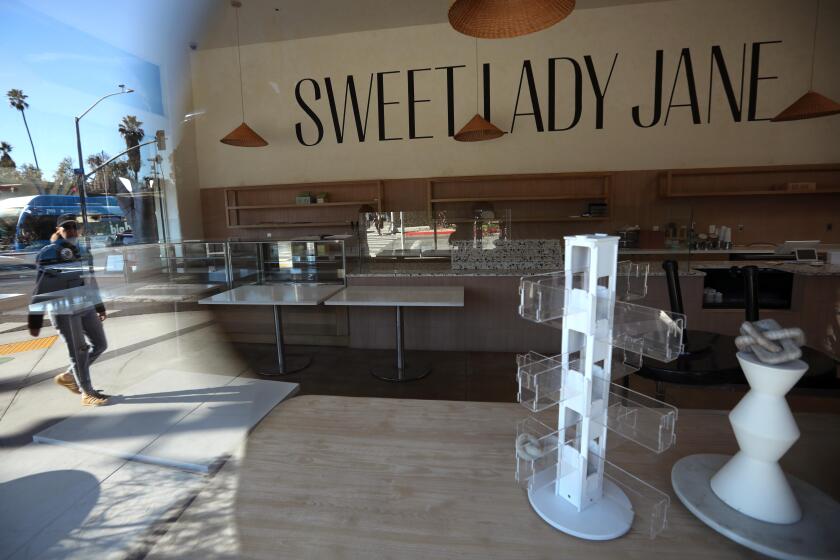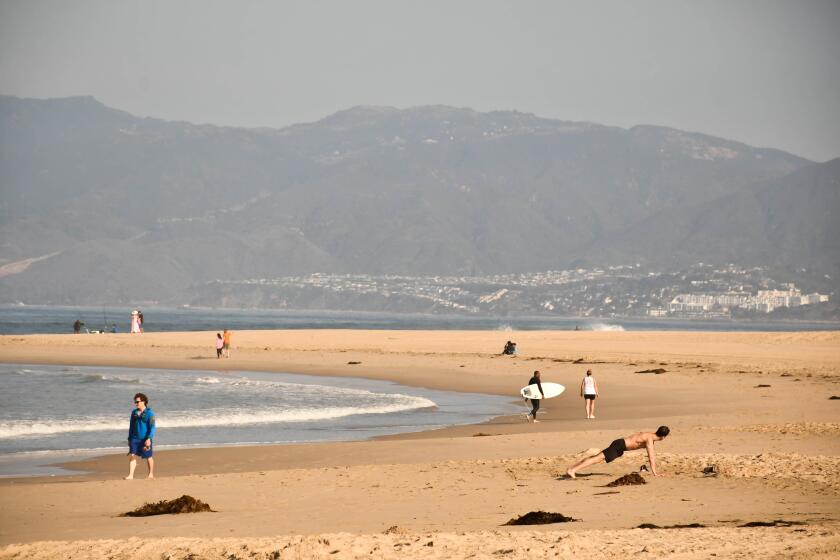As California legalizes recreational marijuana, this L.A. pot shop weighs closing its doors
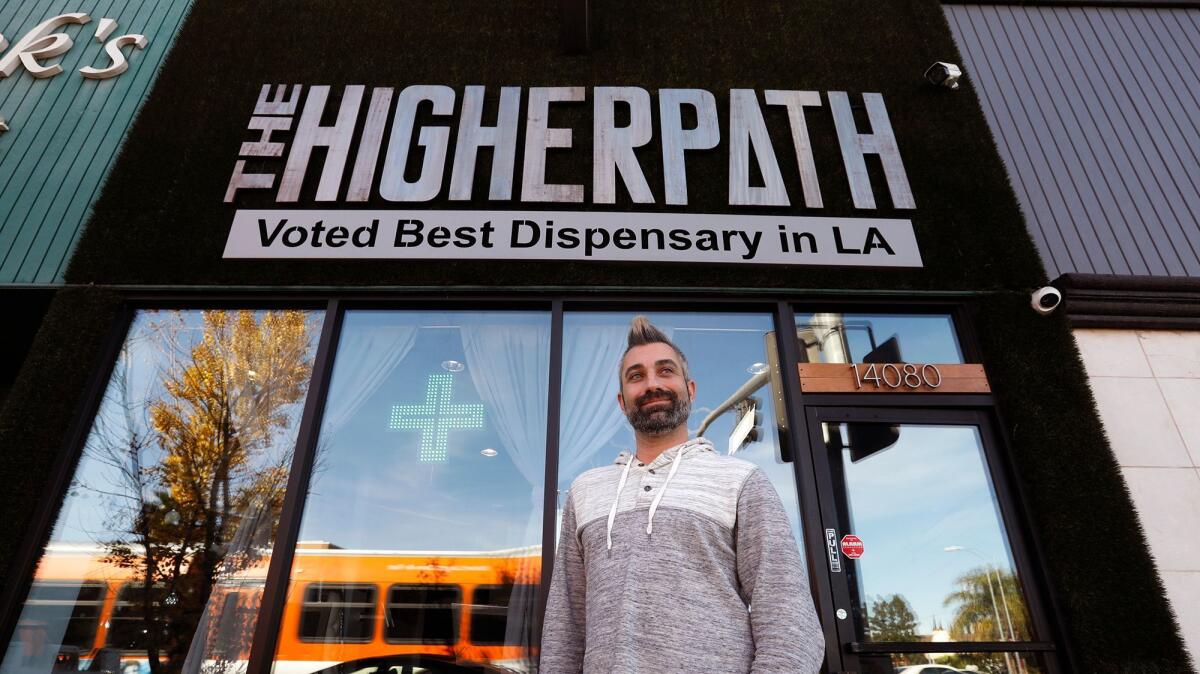
California is days from allowing shops to sell recreational pot to paying customers, legalizing a hotly anticipated industry.
But Jerred Kiloh says that when the New Year rolls around, the doors of his medical marijuana dispensary might be closed, in order to avoid breaking the law.
“I’ve been fighting for this day forever,” said Kiloh, president of the United Cannabis Business Assn. He operates a Sherman Oaks dispensary that has the tranquil vibe of a salon, with artwork of David Bowie and Buddha overlooking his budtenders, herbal tea set out for patients, and a Sherman Oaks Chamber of Commerce plaque on the wall.
“But I’d hate to thumb my nose at the state,” Kiloh said.
The messy and complicated details of marijuana legalization in California have left some Los Angeles pot businesses uneasy about how to follow the new law. To sell cannabis commercially starting in January — whether for medical or recreational use — a pot shop must have a state license. And to get a state license, it needs to have local approval.
Kiloh could get that very soon: Los Angeles is planning to start licensing pot retailers in the coming weeks. Existing shops that have been providing medical marijuana in line with an earlier set of city rules, approved by voters under Proposition D, are supposed to be first in line for those licenses and can start applying Wednesday.
And L.A. says those existing shops can avoid city prosecution while they are applying.
“Los Angeles will operate with flexibility while state and local laws synchronize,” Vanessa Rodriguez, a spokeswoman for City Council President Herb Wesson, said in a statement.
But some attorneys have warned that without an actual license in hand, it would still violate state law for such businesses to keep providing medical marijuana to patients in January.
So Kiloh says he might end up shutting the doors of his shop until he has gotten both city and state approval, a decision that he says could be “suicide.” He fears losing both employees and customers while his dispensary is closed.
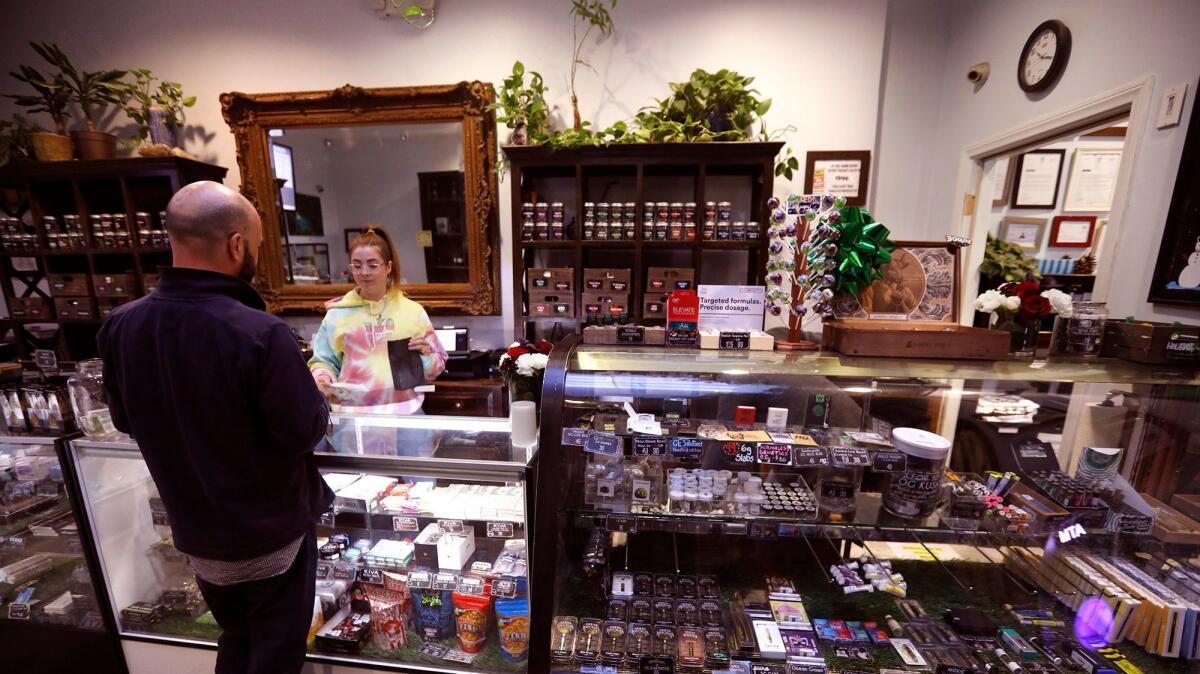
For the Proposition D shops, whether they can legally remain open before getting state licenses is “the multimillion-dollar question,” said Adam Spiker, executive director of the Southern California Coalition, another marijuana industry group. Pot businesses started worrying when they realized L.A. would not start handing out local licenses before January, Spiker said.
“It’s very hard to give people advice on what to do,” said Ruben Honig, executive director of the L.A. Cannabis Task Force.
Many of the L.A. medical marijuana shops that have been complying with Proposition D could get city licenses within three weeks, Department of Cannabis Regulation head Cat Packer told reporters last week. They will continue to have “limited immunity” — a legal provision that gives them some protection against city prosecution — until a final decision is made on their licenses.
But “limited immunity” does not protect those shops against state action. Violating state law, in turn, could make them more vulnerable to federal enforcement, some attorneys warn.
“The problem is, the city is giving them limited immunity for behavior that would violate state law,” said Aaron Lachant, a partner in the law firm Nelson Hardiman who represents Proposition D shops. “Which is making a lot of businesses uncomfortable … I can’t advise my clients to go out there and break the law.”
It is unclear whether they would be punished for doing so: The state Bureau of Cannabis Control is “still figuring out the enforcement side of things” and will initially be driven by complaints, its spokesman Alex Traverso said. As California tries to bring a vast industry out of the shadows, some are skeptical that the state would choose to swiftly crack down on marijuana shops that are first in line for L.A. licenses and have been following local rules.
“If you are in good faith working with your local government to obtain a permit and not in violation of a local ordinance, the state is not likely to focus its enforcement powers on you,” attorney Ariel Clark, chairwoman of the L.A. Cannabis Task Force, wrote in an email.
Justin Singer, a partner with the law firm Feuerstein Kulick, said that it was unlikely that the state would rush to shut down those L.A. dispensaries, “especially given California’s stated goal of ensuring an uninterrupted supply of medical marijuana to patients.”
“L.A. operators should feel comfortable keeping their doors open while continuing to keep their fingers crossed that common sense will prevail over a strict legal interpretation that does not represent the will of the people,” Singer wrote in an email.
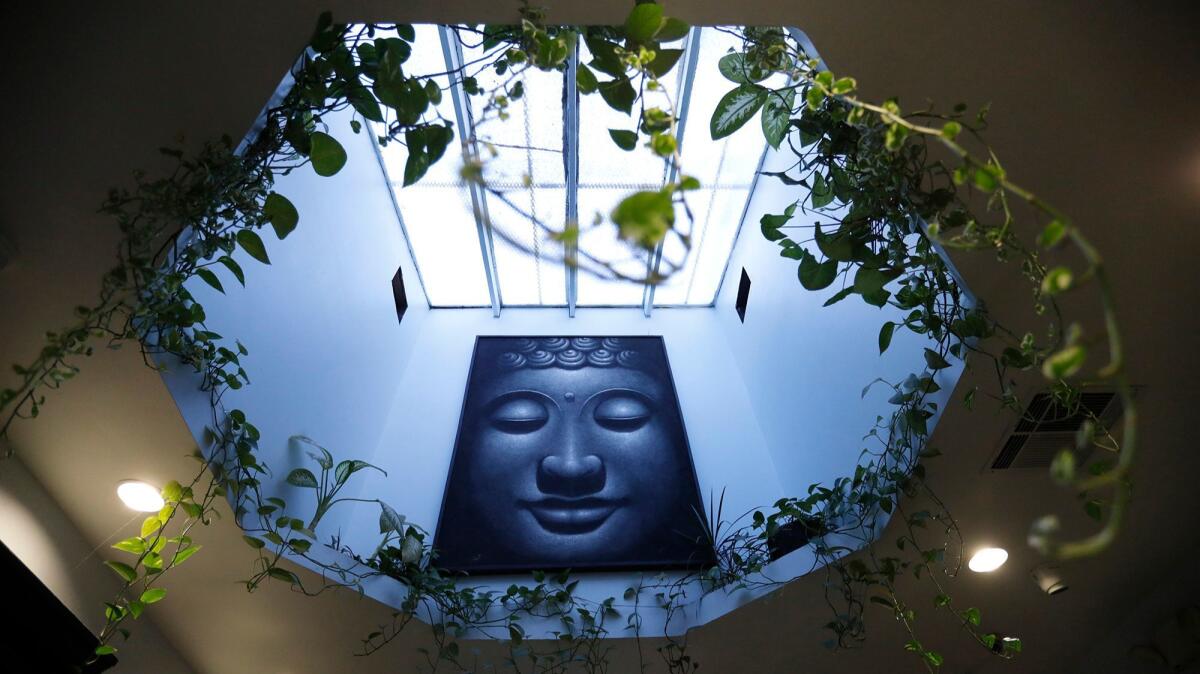
Clark added that running as a marijuana “collective” or “cooperative” could allow those shops to continue to do business legally as they pursue licenses, but she described that operational model as “open to interpretation.” Lachant, in turn, said some of the Proposition D shops may not be able to use that option after making changes in anticipation of the new law.
Amid such concerns, Packer met with members of the marijuana industry this week.
“Our goal is to carry out the will of the voters in a way that keeps our communities safe and brings this industry out of the shadows in a fair and orderly manner,” Packer said in a written statement Thursday. “To that end, we are committed to working with our state partners to make this transition as seamless as possible.”
Kiloh said he still hopes to find a way to remain open without legal risk. He fears that even if the state does not crack down now, staying open without a license could have future consequences But many other Proposition D shops will not close, he said, if only because they cannot afford it.
“We wanted to be legal from day one,” Kiloh said.
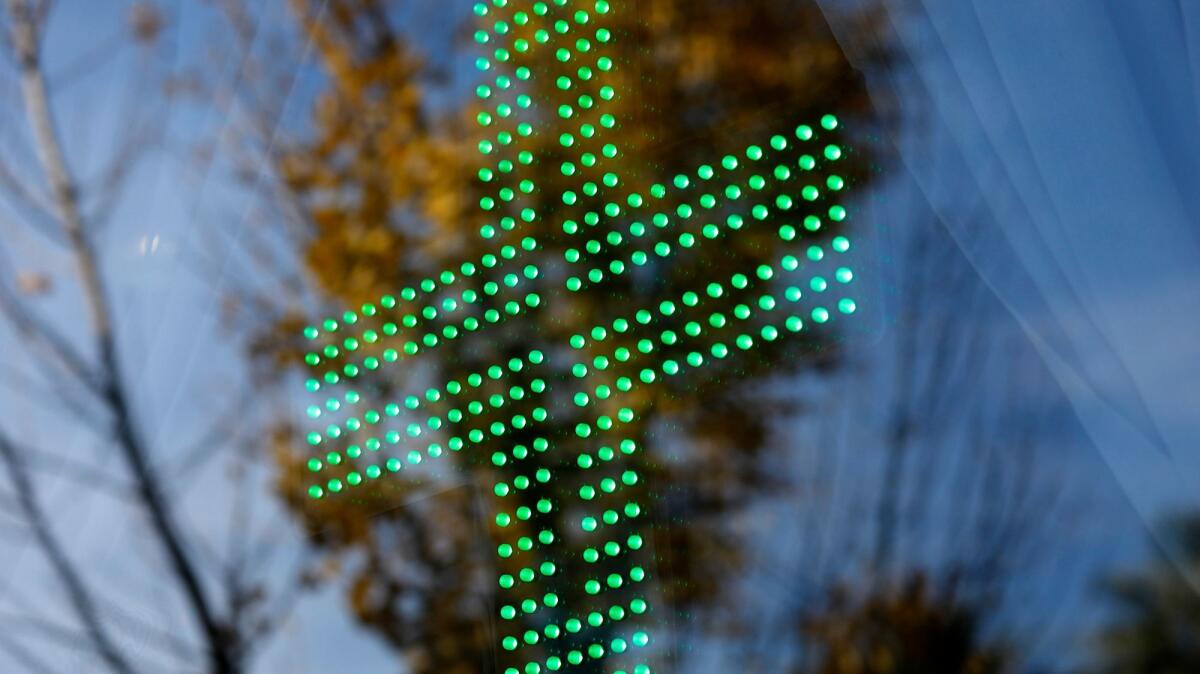

Jerred Kiloh, owner of The Higher Path, might shut down his marijuana dispensary in January because Los Angeles has not yet issued city licenses for pot shops. (Video by Genaro Molina / Los Angeles Times)
Twitter: @AlpertReyes
UPDATES:
7:30 p.m.: This article was updated with information from another law firm.
This article was originally published at 6:10 p.m.
More to Read
Sign up for Essential California
The most important California stories and recommendations in your inbox every morning.
You may occasionally receive promotional content from the Los Angeles Times.




